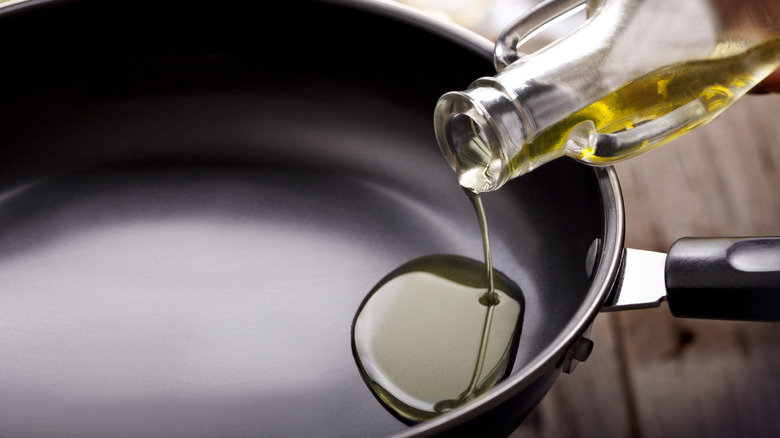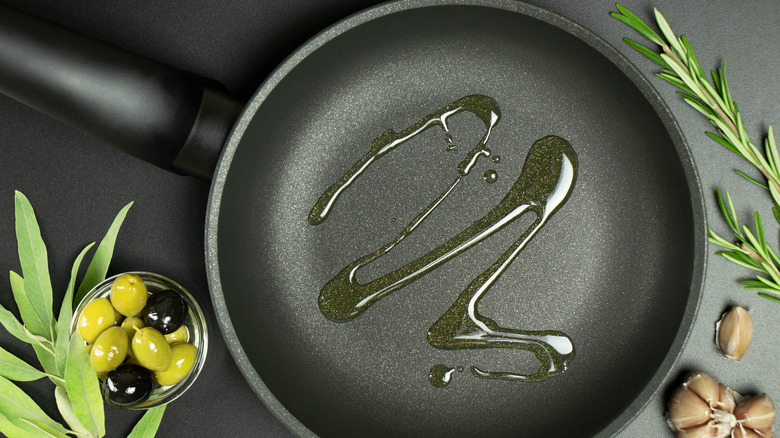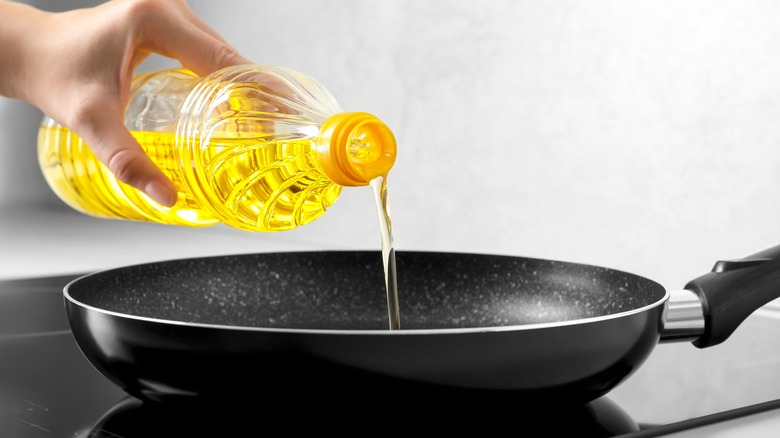Oil Can Make Nonstick Pans Last So Much Longer
Part of the beauty of cooking with a nonstick pan is easy cleanup when you're done cooking. The Teflon coating prevents food from sticking, and you generally need to use less oil when cooking in these pans. While this may add some extra convenience in the kitchen, you'll need to make sure you take care of your cookware.
To keep your nonstick pan fresh and ready for use, you'll want to make sure to properly maintain it — and that means adding some additional oil to the surface. While oil may not necessarily be essential for preventing your food from sticking, it can help extend your pan's lifespan, and should always be added when cooking with nonstick pans. You can even add oil after washing your pan, just be sure to wipe it thoroughly before putting it away.
Adding a little bit of butter or oil before cooking in your nonstick pan can add an extra layer of protection on the surface while cooking. So, go ahead and slather the outside of your grilled cheese sandwich with a layer of butter — it'll protect your pan, and taste delicious, too.
The oil protects the cooking surface
Even the best nonstick pans typically last for only three and a half years before the Teflon coating erodes off the cooking surface. The coating is gradually worn away every time you cook with the pan, and you might start to struggle with removing food from the surface once it starts to go. The addition of oil will create an extra barrier, protecting the surface of the pan so it can last a little longer.
Before you even turn the burner on, you'll want to add your oil to the pan. While heating the pan before adding your fat is usually a good rule of thumb, the opposite applies with nonstick cookware. As the pan heats up with the oil, the nonstick properties could get a boost from the addition. You can apply a thin layer of cooking oil by pouring a bit into the pan and moving it around — or using a paper towel to spread it, if you really want to thin it out.
Choose the right oil for your pan
It's equally as important to choose the correct kind of oil to add to the pan. It might be quick and easy to spray on a quick coating of cooking spray, but it could actually be doing more harm than good. Cooking sprays contain additional ingredients that can create buildup on the surface of the pan. These will need to be scrubbed off, and that harsh cleaning could scratch the surface of the pan.
Instead, you'll want to opt for something a little fattier. Butter is a great option, and oils with high smoke points are even better, since they're less likely to overheat and burn in the pan. Peanut, canola, and coconut oils are all good options.
Though oil may not be needed to keep your food from sticking to the pan, it's an essential element when maintaining the integrity of your nonstick cooking surface.


